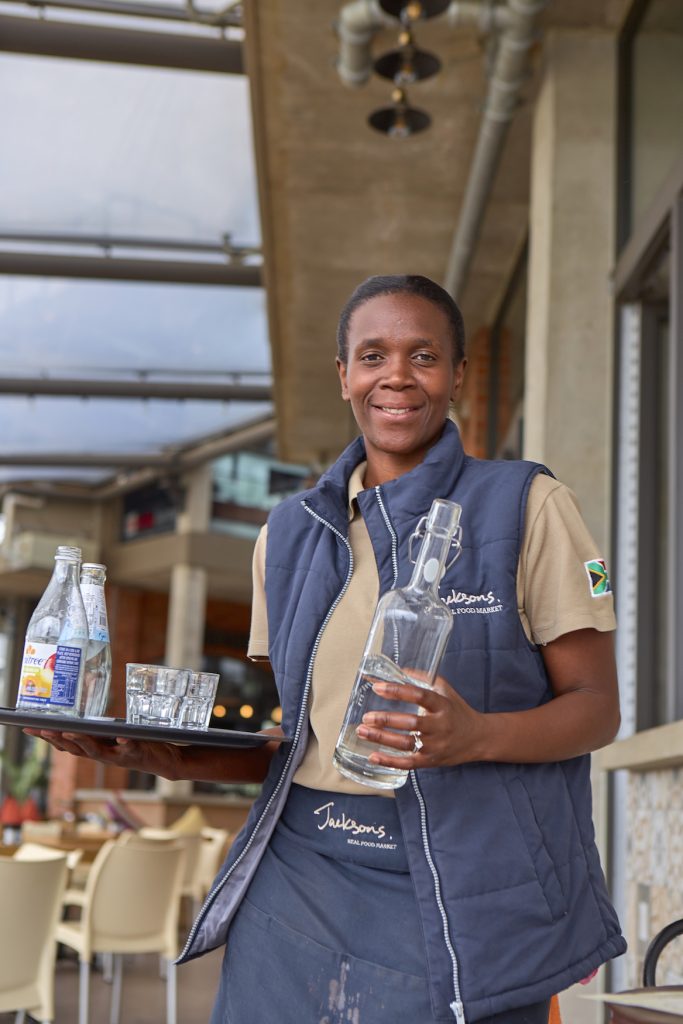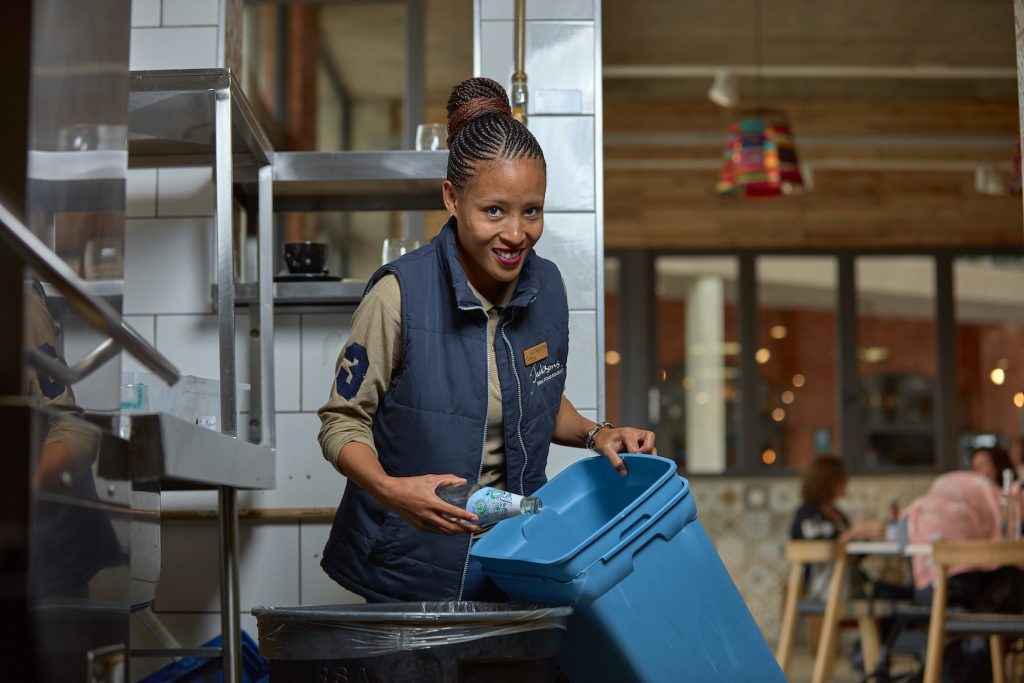
Glass recycling is more than just tossing bottles into a bin. It’s a complex process that involves a multitude of terms and concepts. From A to Z, understanding these terms is crucial in appreciating the significance of glass recycling in South Africa.
Here are a few important words to learn as you grow in your glass recycling journey.
A – Amber glass: A tinted glass made by using different mixtures of sulphur and iron oxide. Amber glass is a variation with a brownish hue, often associated with beer bottles.
B – Bin storage: A large container or enclosed space for storing something in bulk, such as assorted glass bottles, plastics, or papers·
C – Cullet: Cullet is crushed, or broken glass used as a raw material after cleaning and processing in manufacturing new glass products. In South Africa, ideal cullet size is no smaller than a R5 coin.
D – Disposal: The action or process of getting rid of waste.
E – EPR (Extended Producer Responsibility): EPR is a policy approach making manufacturers and producers responsible for recycling and disposing of their product packaging, including glass. It is now mandatory for all producers of paper and packaging including glass in SA.
F – Flint: Flint glass is clear and often used in tableware and glass bottles.
G – Glass bank: Glass banks are designated containers or collection points enabling consumers to deposit glass packaging waste for recycling.
H – Hazardous waste: Waste with properties that make it dangerous or capable of having a harmful effect on human health or the environment, such as water pollution, paint containers etc.
I – Industrial waste: Waste generated by manufacturing or industrial processes. The types of industrial waste generated include scrap metals, trash, oil, solvents, chemicals, weed grass and trees, wood and scrap lumber, and similar wastes.
J – Jar: a wide-mouthed cylindrical container made of glass and typically having a lid, used especially for storing food.
K – Knowledge sharing: An activity through which knowledge is exchanged among people, businesses, communities, etc. A significant part of the Glass Recycling Company’s work is educating communities about glass recycling.
L – Landfill: Landfills are designated areas for waste disposal, where waste is buried.
M – Mandatory Separation at Source: A scheme mandating the public to separate recyclables for waste collection, a primary solution for increasing glass collection rates.
N – Non-recyclables: Materials that can’t be recycled due to composition, contamination, or lack of recycling infrastructure.
O – Organic waste: Biodegradable waste like food scraps and garden waste can be composted or used for energy generation.

P – PRO (Producer Responsibility Organisation): Producer Responsibility Organisations are collective nationally operating bodies that provide compliance with the legislative requirements and EPR policy of producers on their behalf. PROs also ensure recovery and recycling targets, educate on waste prevention, verify the data and report to national authorities accordingly. The Glass Recycling Company is the PRO for glass packaging in South Africa.
Q – Quality: Glass is 100% recyclable and can be recycled endlessly without loss in quality or purity.
R – Reusable: Reusable glass containers, like large beer bottles, can be reused after sterilisation.
S – Silica sand: Silica sand is used as a raw material in glass manufacturing. Silica is one of the most common minerals in the earth’s crust. Glass, beach sand, silicone, and granite are all silica materials.
T – Trash: Non-recyclable waste materials sent to landfills or incinerators.
U – Upcycling: Upcycling transforms waste materials into new, higher-value items.
V – Volume reduction: Processing waste materials to decrease the amount of space they occupy, usually by compacting, shredding, incineration, separating or composting.

W – Waste: Materials no longer useful that are discarded or recycled.
X – Xtra care: By recycling glass you are taking extra care of the environment.
Y – Yard waste: Organic waste materials from yards and gardens, like grass clippings and leaves.
Z – Zero waste: A philosophy aiming to minimize waste generation and maximize resource efficiency through recycling and sustainable practices.
Understanding these terms empowers us to make informed choices and contribute to a sustainable future through responsible glass recycling.
Let’s make each letter count in our journey towards a greener, more sustainable South Africa.
ABOUT THE GLASS RECYCLING COMPANY
The Glass Recycling Company (TGRC) NPC is the Producer Responsibility Organisation (PRO) for glass packaging in South Africa. They facilitate Extended Producer Responsibility (EPR) programmes for companies that produce glass or package products in glass bottles or jars (manufacturers, importers, brand owners and retailers). The organisation is registered with the Department of Forestry, Fisheries and Environment.
Website: www.tgrc.co.za
INFO SUPPLIED.


